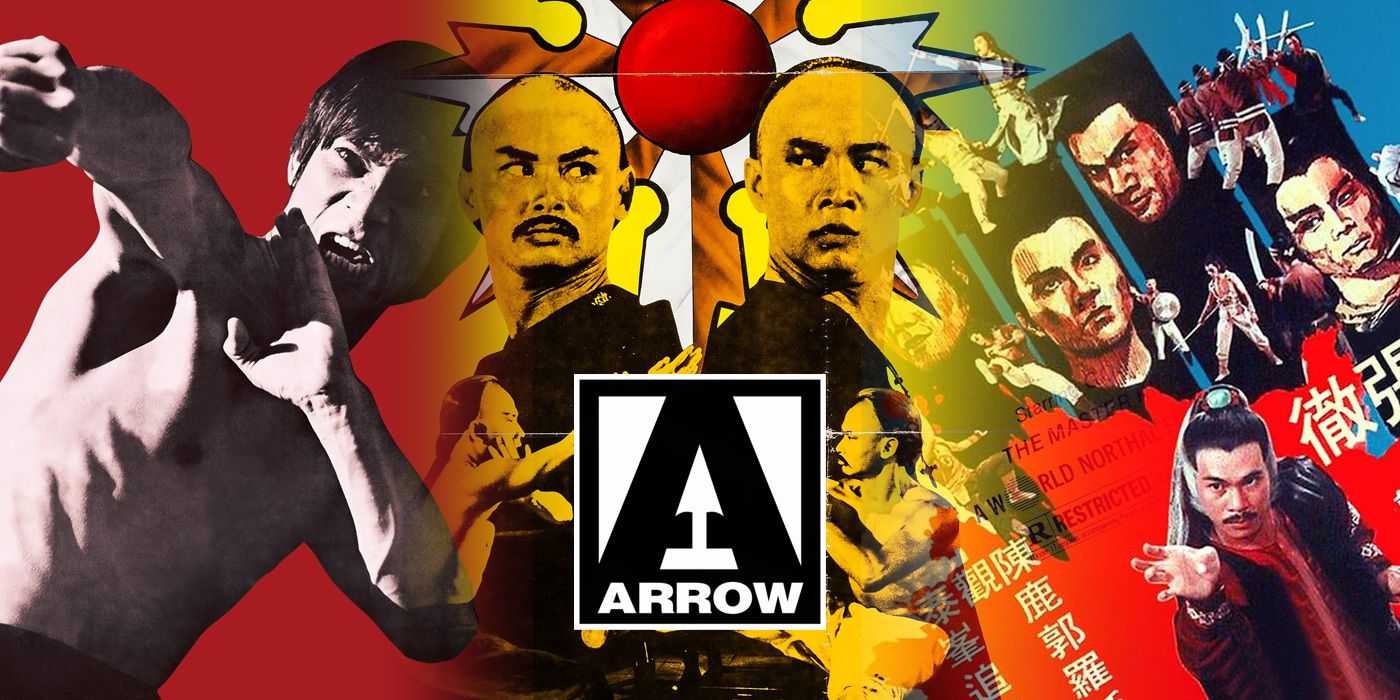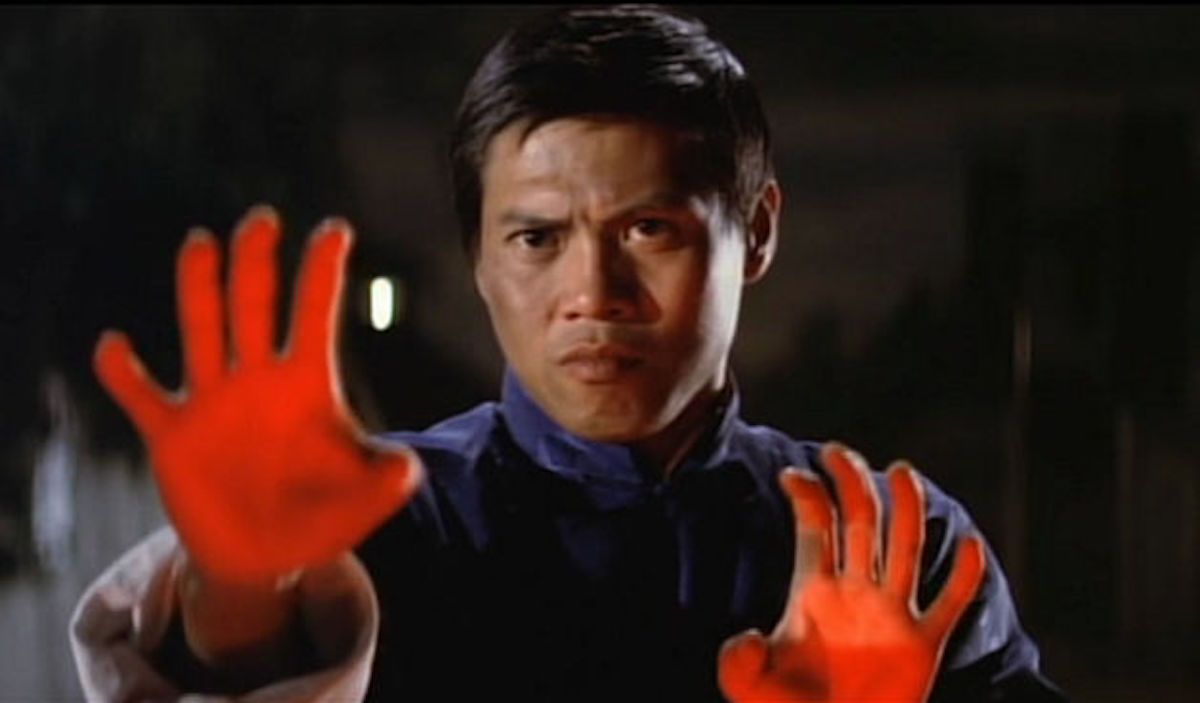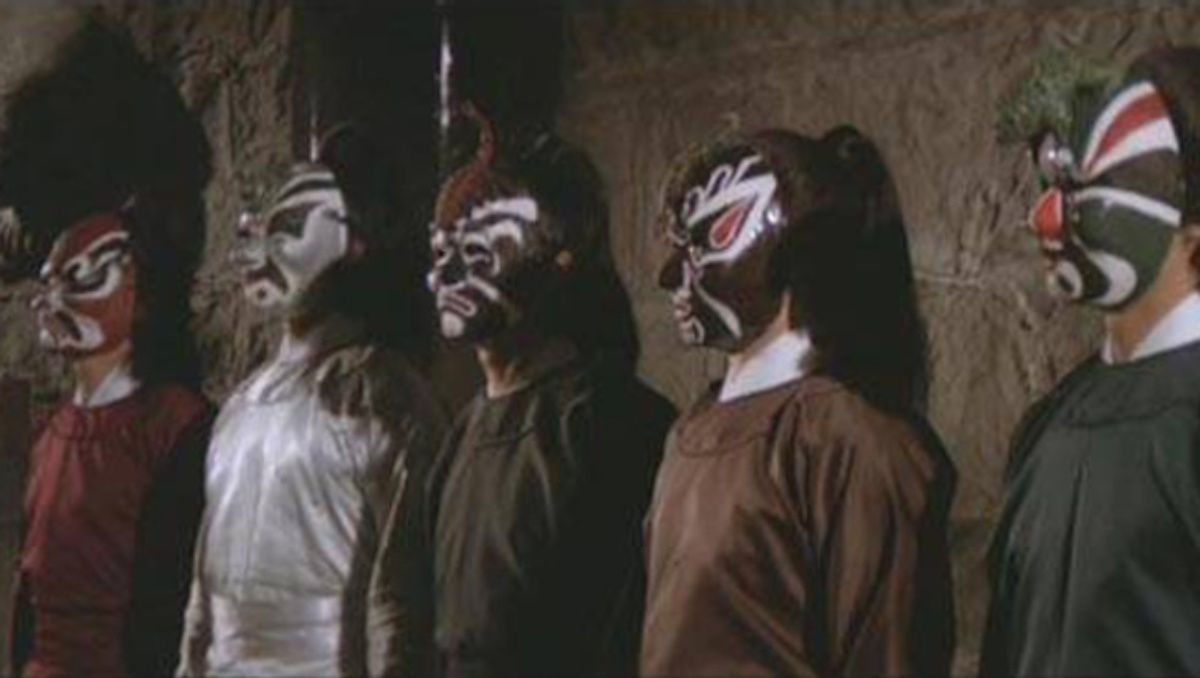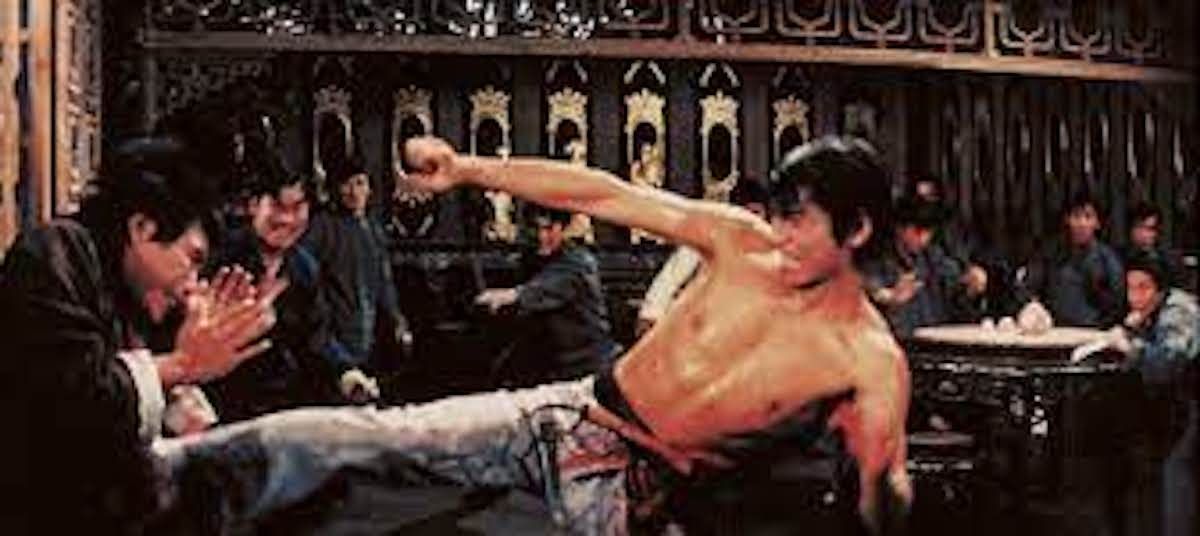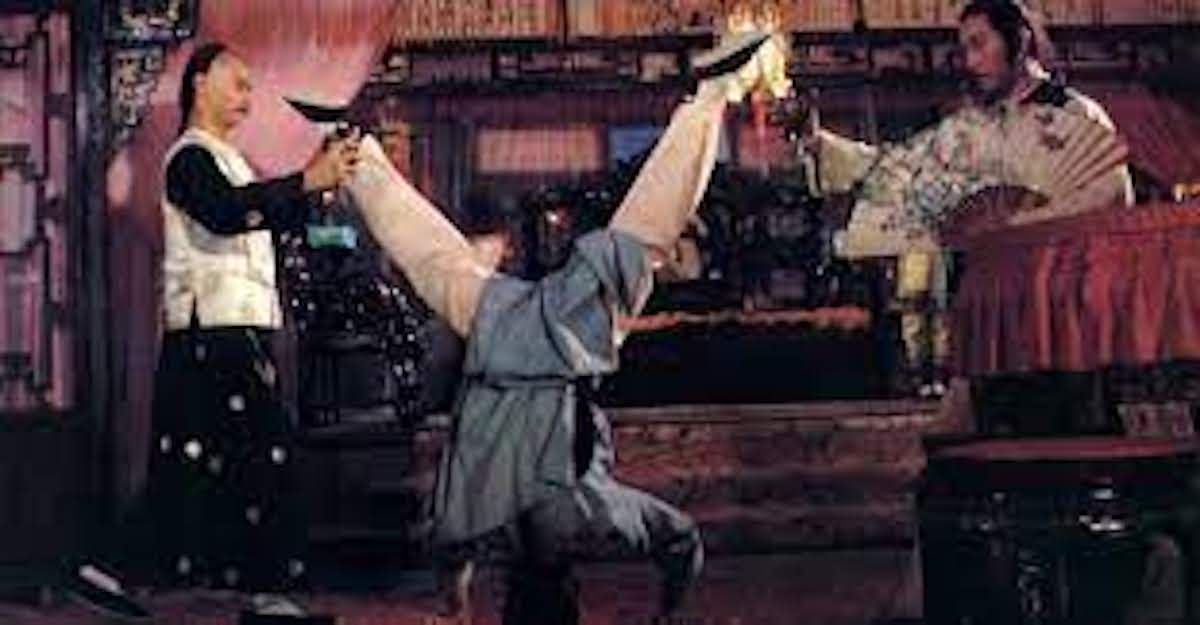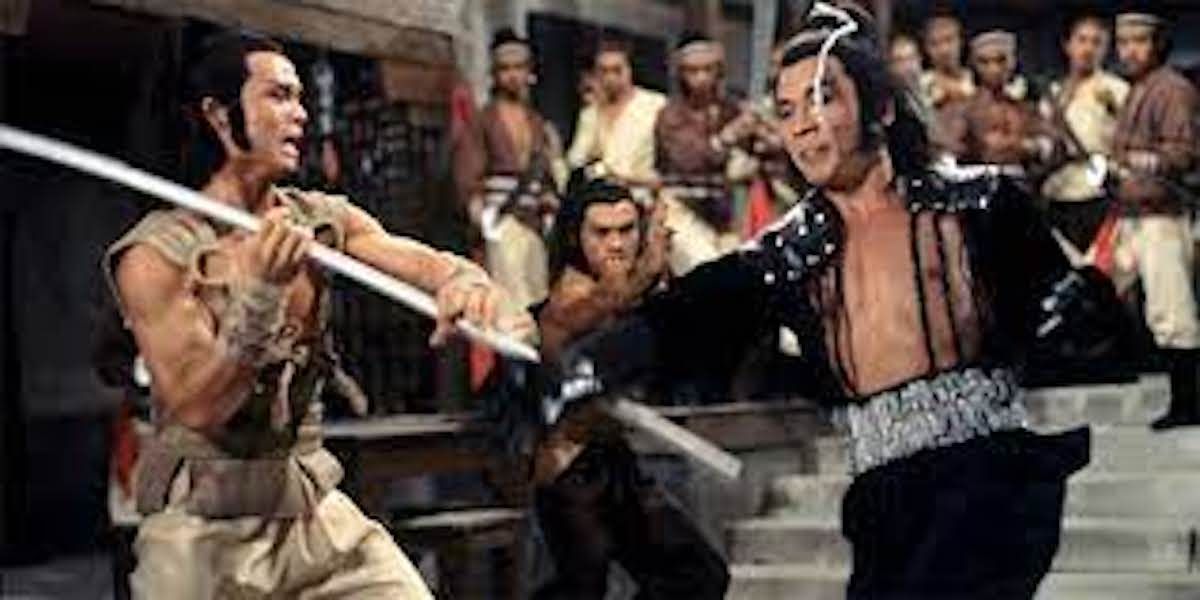There are few movie studios in the history of cinema as prolific as Shaw Brothers Studio. Started by four brothers under the name "The Shaw Organization", the studio was soon taken over by two of the men, Runme and Run Run Shaw, and was transformed into the biggest privately-owned movie studio in the world. Having produced over a thousand works, the studio output some of the most iconic Hong Kong films of the century, and though the genres of the movies produced included period dramas, comedies, and thrillers, the studio quickly became known primarily for its bountiful turnout of kung fu flicks, eventually helping popularize the genre in an international audience. These films had a significant impact on a generation of filmmakers and artists both in Hong Kong and overseas. Directors like Ang Lee and Zhang Yimou, with films like Crouching Tiger, Hidden Dragon and House of Flying Daggers are indebted to the Shaw films to some degree. Quentin Tarantino, noted aficionado of Eastern film, frequently cites the movies produced at Shaw Brothers Studios as an inspiration. Wu-Tang Clan’s the RZA, relating to the struggles of frequently oppressed rural Chinese protagonists, has championed several of the studio's acclaimed works since his hip-hop group’s 1993 debut.
With such a high volume of movies produced, there is inevitably a variation in quality. While some remain in obscurity, others have catapulted into worldwide success, serving as crowd-pleasing action pictures that turned their performers into stars. Yet, the number of Shaw-produced classics is still plentiful, and even the list of essential films from the catalog is nothing if not lengthy. Many of these movies have recently resurfaced, with Arrow Video releasing “Shaw Scope Volume One”, a collection of prolific works from the era, on their streaming platform for your viewing pleasure. Either dubbed or subtitled, depending on your viewing preference, we’ve compiled a list of the 5 best films from the collection.
Here are 5 essential Shaw Brothers films available for streaming now on Arrow Video.
King Boxer (1972)
The blood-soaked 1973 film King Boxer, released as Five Fingers of Death in the US, is a showcase of unflinching, gratuitous violence as potent as any you’ll see in the Shaw Brothers catalog. Directed by Jeon Chang-hwa, the film follows a young martial arts student (Chao Chih-Hao) as he leaves school to enter a tournament after hearing that a thuggish gang of its participants has been using martial arts skills to terrorize a nearby town. It’s a simple, but effective iteration of the age-old “good versus evil” tale where the villains are dressed in black, the heroes in white, and, inevitably, they get into a fair share of scuffles. Yet, King Boxer dodges triviality through a consistent set of brutal, no-frills fights and an emotionally rich narrative that features one of the most deadly techniques in any martial arts film: the iron palm.
It’s easy to see why the film is a fan favorite, consistently making the list of Quentin Tarantino’s all-time favorites, even heavily-inspiring numerous scenes in Kill Bill. Through its glorious use of quick-zooms, tinted lighting, and eye-popping effects, this Shaw entry accomplishes the task of distinguishing itself from its many counterparts. King Boxer is at once a testament to the triumphant power of righteousness in the fight against the wicked and an inspiring tale of redemption.
The Five Venoms (1978)
Shaw Brothers Studio hit a new creative peak with The Five Venoms, a twisting, star-studded picture that would go on to earn its deserved status as one of the most beloved cult films of all time. Yang (Chiang Sheng), a young student in the school of the Poison Clan, is dispatched by his master (Dick Wei) to search for the school’s five formal pupils, played by the group of actors colloquially known as Venom Mob. As the identities of the pupils are revealed to one another, each finds where his loyalty lies amongst the others, and so an intricate plot of mystery and betrayal begins.
Helmed by seasoned director Chang Cheh, The Five Venoms utilizes the distinct stylistic talents of each member of Venom Mob (Centipede, Snake, Scorpion, Gecko, and Toad) to craft an endlessly original piece of martial arts entertainment. Don’t think this is simply another mindless action flick, though, for the film threads themes of morality and political corruption into its unpredictable narrative, making it one of the most well-rounded martial arts films ever made.
The Boxer From Shantung (1972)
Amidst a filmography largely devoted to protagonists operating under an unwavering code of righteousness, The Boxer From Shantung indulges in a deeply satisfying sense of moral ambiguity and serves as another smash hit from Chang Cheh (with co-direction by Pao Hsueh-li). In a plot line fit for a spaghetti western, Chen Kuan-tai plays Ma Yongzhen, an out-of-town loner who works as a penniless laborer. Through his considerable fighting skills, Ma soon earns the respect of many highly-powerful figures in the community and finds himself entangled in a fight for territory between two rival gangs.
Ma operates according to a complicated moral code a far cry from the typical law of honor practiced by protagonists in other films of the genre. He accepts money from local business owners for his strong-armed protection, brutally breaks the arms of his opponents, and falls prey to the innumerable vices that accompany wealth. It’s a landmark movie distinct from its counterparts in its tone, themes, and pacing, and its mesmerizing action sequences would go on to inspire the film’s assistant director, John Woo, in his many Hong Kong action hits. When the film climaxes with a nearly twenty-minute-long, unflinchingly bloody final brawl set in a teahouse, Chang gifts the viewer with a series of gruesome images likely to stay seared into their eyeballs.
Dirty Ho (1979)
This 1979 action-comedy recruited two of Hong Kong’s hottest names, director/choreographer Lau Kar-leung and actor/martial artist Gordon Liu, to dish up a serving of comedic brilliance. Beginning with a deeply expressive credit sequence in which the two leads combat an army of assailants on a pure white set, the film immediately sets its delightfully playful tone. The titular Ho (Wong Yue), a jewel thief with a penchant for impressing women with his bounty of stolen treasure, has a chance encounter with the enigmatic master Wang (Gordon Liu), whose powerful influence over the local police force is soon to be revealed. Once the two men’s bond grows closer due to a series of oddball circumstances, they quickly discover what each can learn from the other.
Dirty Ho succeeds largely to the infectious charisma of its stars, but the greatest strength of the film is its action sequences, in which Lau provides some of the most exquisitely intricate fight choreography in any Shaw Brothers picture. In scenes predating the comedic violence of Jackie Chan films, suspense is merged with slapstick, and weapons are used as comedic props just as frequently as they’re used for heightening the intensity of the fights. Centered in the film is a set of battles between Wang and some would-be assassins out to take his life. As the villains strike, Wang discreetly fights back, playing it off as if he were merely conversing with his foes. It’s all quite a spectacle, a measure of true showmanship in which the rhythms of sparring are as tightly prepared as ballet.
Crippled Avengers (1978)
Reuniting director Chang Cheh with the now internationally-famous Venom Mob, Crippled Avengers proved that the success of The Five Venoms was no fluke. Though released Return of the Five Deadly Venoms in the US, this lean, mean revenge picture is narratively unconnected to its predecessor, instead featuring a plot about four skilled martial artists who take a vow of vengeance after being disabled by a wicked master of combat (Chen Kwan-tai). What follows is an endlessly entertaining extravaganza featuring duels, vendettas, men with iron limbs, and a lot of camaraderie.
Chang, knowing by now what makes his movies work, lets his actors loose to showcase their signature athleticism with enough acrobatic maneuvers to drop your jaw. Given all the spectacular violence, it's surprising how utterly wholesome the film often manages to be. The protagonists, some of the most lovable in the kung fu canon, maintain an unrelenting spirit. Their disabilities neither define them nor prevent them from achieving their goals. One crucial trope to martial arts films is the "training sequence" and Crippled Avengers partakes in this tradition in a glorious variation. As the four heroes train under the tutelage of their skilled old master, they help one another overcome their weaknesses. They test one another, challenge one another, and as they strengthen into unstoppable fighters, they form a brotherly bond. It's truly heartwarming to see, a lesson in patience, kindness, and understanding.

